Can you REALLY be healthy at any size? Does weight REALLY not matter? When your doctors and other healthcare providers are so focused on your weight and BMI, it can feel confusing…how do you really know if you’re healthy or not?
In this blog post, I’ll give you a run-down of the incredibly popular health at every size (HAES) movement, share some of the amazing research that is available (as well as why there are so many errors in previous health research), and give you actual ways to measure your own health. You’ll be excited to understand this completely new way of thinking about health & wellness.
So…what is HAES, exactly?

What Is Health At Every Size (HAES)?
This blog post will give you a high, imperfectly over simplified level overview of HAES. Throughout the post I’ll direct you to some other sources which I’d recommend looking into in order to fully grasp the concept. I’d also like to acknowledge my own thin privilege while writing this. You can learn more about thin privilege here: What Is Thin Privilege (And Why You Need To Know)
HAES stands for Health At Every Size. HAES makes the bold (and science-backed) statement that our health and wellness is not determined by our size pants, the number on the scale, or BMI.
(…totally wild, right?)
So, if weight is not how we’re measuring health with HAES, what do we look at instead?
HAES focuses on health-promoting behaviors.
HAES is a weight-neutral approach to health, shifting away from the previous weight-focused ideals.
The HAES movement promotes the respect and acceptance of diversity in one’s shape and size, knowing that health is not determined by our body size/shape. There is no specific number that can accurately measure health for all of us.
The Association For Size Diversity And Health (ADASH) is a non-profit organization that first started in 2003 that is committed to the HAES principles (which we will go over in a second!)
One of the analogies (albeit much over simplified) that I like to better understand HAES body diversity is the poodle analogy. Check out this quick video for the full scoop, but in brief, if we think about a group of amazing dogs, a healthy poodle is going to look different and weigh a different amount, than a healthy Chihuahua or a healthy Bernedoodle.
In terms of health and wellbeing what actually matters is how often the poodles go on walks, get a good night’s sleep and have fun with their puppy friends.

And the same goes for us humans: our genes have given our body a blueprint for how big our feet are, how much junk we have in the trunk, the color of our eyes, our height, and yes, even our weight.
We are far too diverse to be able to simplify one weight recommendation for everyone. Two people can eat the exact same thing, exercise the exact same amount, and still have different body sizes and shapes.
This brings us to the 5 HAES principles.
Health at every size principles
Our society would have us believe that anyone classified as “overweight” or “obese” is unhealthy and that everyone who is thin is healthy.
Both assumptions are false.
The most important thing to understand about HAES is that you’re healthiest at your own set-point weight doing the healthy behaviors that keep you there (we’ll delve into the set-point in a minute).
The health at every size approach has 5 principles:
- Weight Inclusivity: Accepting differences and diversity in body shapes
- Health Enhancement: Paying attention to one’s physical, mental, spiritual, and economic health
- Respectful Care: Advocates for weight inclusivity and fighting stigmas
- Eating for Well Being: Becoming an intuitive eater by getting rid of diet culture food rules
- Life-Enhancing Movement: Becoming involved in forms of movement and exercise that makes one feel good
In essence, HAES is rejecting the idea that the thinner you are, the more healthy you are.
Restrictive diets are not the gateways to health. HAES supports what we know about dieting and intentional weight loss not being beneficial to our health (more on this later). Intentional weight loss is a vanity-focused ideal.
So…that is what HAES is…what about the common myths?
What HAES is NOT
While your ‘idea’l size for best health might not match other people who are the exact same height, HAES does not mean that you’re at your very best health at all sizes.
HAES does not mean that you’re at your healthiest at every single size. This is a super important distinction that, unfortunately, a lot of social media messaging gets wrong. It’s about embracing all sizes that our bodies is intended to be and none of those being “wrong”.
I explain that one’s best health is when you’re at your own set point weight: the weight at which you feel mentally and physically good and can maintain that weight easily within a range. If you weigh far more than your set point, you are likely not as healthy as when you are at your set point.
To better explain this, let’s break down the set point weight theory a little more.
The set point theory is the idea that your body aims to maintain a specific body weight/weight range in order to maintain homeostasis (i.e. optimal functioning).
Let’s say that Sara’s current weight is above her set point weight. Right now, Sara’s less healthy behaviors are contributing to that size: restrictive dieting, binge eating, not having joyful movement, high-stress levels, and not sleeping well.
But, things can change.
As Sara changes her health behaviors – without focusing on weight – she’ll reach her set point weight where she has the greatest wellbeing. She begins intuitive eating, embraces joyful movement, and practices emotional self-care. The health gained is because of the changes in behaviors, and less about the weight.
On the flip side, maybe Claire is below her set point weight and when she starts to nourish her body to satisfaction and reduce excessive exercise she may gain weight overall. And be healthier, to boot.
And for Tina? Maybe Tina is at her set weight right now but doing so with less healthy behaviors. But, when she starts implementing intuitive eating and stress management, she stays the same weight, but as a result of her behavior changes, she becomes much healthier.
Your body shape and size are part of your genetic makeup, and as we said earlier, two people can eat and work out the exact same way yet look different. Studies look into the genetic role of our brain and the hormones it releases in order to control our weight.
In this Ted Talk about set points neuroscientist Sandra Aamodt explained it perfectly; she stated “Like a thermostat, Aamodt says, chemical messengers from the hypothalamus gland help regulate hunger, activity, and metabolism to keep your weight stable as conditions change. Think of it this way: You can try to change the temperature in your house by opening a window in winter, but your thermostat will kick up the heat to balance the difference in temperature.”
So, we might want to be a different size because we are told by society that it will make us healthier, but in reality, we are harming ourselves and fighting against our body’s natural size.
It’s also important to note that our set weight is a RANGE, not a singular number. And it can also change throughout our lives. More on that in my blog post on the set point weight theory!
Why Weight Loss Shouldn’t Be The Goal
So…if the behavior changes caused weight loss in the example above, why shouldn’t weight loss be the goal?
The answer is that because so many different behaviors can cause weight loss, and many of them are:
- unhealthy
- not sustainable
Studies have shown us again and again that when we try to fight our set point weight by dieting… well… it doesn’t work. The research shows that long-term weight loss is rare and that our bodies’ response to dieting and fighting our set weight is to regain that lost weight and likely increase our set weight further.
Remember that thermostat we talked about earlier? Well, when it senses something is off like weight is getting too low due to not getting enough energy it’ll pack on a few extra pounds to prepare for the next time energy is scarce.
This is why those who frequently diet tend to see their weight go up and up with each subsequent diet. It’s not your lack of willpower, it’s your body fighting to protect you! Furthermore, that up-and-down of weight (called weight cycling) caused by dieting is actually shown to increase the risk for disease. No bueno.
Does HAES promote “obesity”?
Nope.
There are a lot of issues with the word “obesity” in itself. You may see an “*” used when spelling the word because it is seem by many as not an appropriate medical term.
HAES promotes you embracing your unique body by optimizing your health behaviors.
HAES promotes the concept including such that we have different genetics and therefore different blueprints for how our bodies look when given adequate care (lookin’ at you, reducing stress, access to food that makes you feel good and joyful movement).
Instead of measuring health by weight, HAES measures health by behaviors.
Healthy behaviors allow your body to reach your ideal set point.
Side note: The term “obesity” is a classification on the BMI scale that doesn’t accurately depict someone’s health.
As a dietitian, I cannot predict what is the best weight for you, even though your doctor might be advocating for the BMI. I say the BMI is garbage and needs to go.
And the BMI? It Needs To GO
The BMI formula is a ratio of how tall you are to how much you weigh.
It was never intended to be used as a health metric.
The BMI formula does not measure your health status, it simply can’t. But why? Well to start BMI does not differentiate between our muscles or fat.
So, someone who is more physically active and has more muscle might have a higher BMI than someone who does not, yet does that make them less healthy? Quite the contrary. BMI can’t measure one’s blood pressure, metabolic blood panel, hormones, stress level, or sleeping habits.
To put things in perspective Harvard Health even stated “Plenty of people have a high or low BMI and are healthy and, conversely, plenty of folks with a normal BMI are unhealthy.
In fact, a person with a normal BMI who smokes and has a strong family history of cardiovascular disease may have a higher risk of early cardiovascular death than someone who has a high BMI but is a physically fit non-smoker.”
HAES Can Improve Mental Health & Self Esteem
In one study, when comparing a HAES (weight neutral) group to a dieting group, their findings states, “The health at every size group also demonstrated a parallel improvement in self-esteem, and 100% of participants reported that their involvement in the program helped them feel better about themselves (compared with 47% of the diet group).
The diet group, on the other hand, demonstrated initial improvement followed by a significant worsening of self-esteem at follow-up. This damage to self-esteem was reinforced in other of the self-evaluation questions. For example, 53% of participants in the diet group expressed feelings of failure (compared with 0% of health at every size participants).”
And while talking about self-esteem might sound irrelevant to health, it’s not.
Think about it: if you’re feeling really crappy, are you going to want to take part in health-promoting behaviors like spending time with friends, cooking a nourishing meal, and enjoying an invigorating hike? …or are you going to want to curl up in bed with your friends Ben & Jerry and Netflix binge all day? Yeah, thought so.
So, What Can I Do To Become Healthier?
How do we actually measure health? It’s complicated.
Studies have shown that while weight is not a predictor of health, health-promoting behaviors ARE. Positive health outcomes were seen in those who implemented health-promoting behaviors such as eating 5 or more fruits and vegetables daily, exercising regularly, consuming alcohol in moderation, and not smoking regardless of what happened to their weight.
What may surprise you is that the group that saw the most benefit were those considered “obese.” While their weight may not have changed, their health status did see improvements. This furthermore shows that you can improve your health without focusing on weight loss.
Here are some health-promoting behaviors you could try to implement if you’re concerned about improving your health:
1. Learn How To Eat Intuitively
This means getting RID of diets and food rules. Dieting causes scarcity in your mindset and creates short-term results that don’t stick.
Letting go of dieting is scary, I know, but this is how you’re able to find your set point weight and, in turn, your most optimal health status.
I have loads of resources for you on this topic such as some blog posts as well as YouTube videos:
- How To Explain Intuitive Eating (Blog post great for anyone new to IE!)
- What To Expect When You Stop Dieting (Again, great for newbies!)
- 5 Ways To Start Eating Intuitively Today (Great, actionable YouTube video!)
2. Practice Gentle Nutrition
Let’s face it… I’m a registered dietitian. And while I don’t believe in intentionally manipulating our weight I DO believe in nourishing our bodies to foster health.
You CAN care about your health and live without food rules or diets.
How?
By practicing gentle nutrition. I have an entire blog post explaining gentle nutrition, but basically, it is a way to add health-promoting behaviors (say consuming adequate fiber, whole grains, fruits, veggies, etc.) without being on a diet!
One key piece here: this has to come AFTER you break your food rules, so I highly recommend looking into that “learn how to eat intuitively” piece first!

3. Work On Stress Management
Being stressed can negatively impact your body in major ways, including your blood pressure and even causing inflammation. Stress can also impact you mentally by causing feelings of anxiety, depression, irritability, and even physically such as GI issues, skin breakouts, sleeping issues, and lowered immunity.
So, to help better our health we need to ensure we are taking care of our mental health. Some ways to do this could be engaging in joyful movement. This looks different for everyone but some examples could be dancing, rollerblading, jumping on a trampoline, skiing… the options are endless just do what moves you.
Exercise should feel more like a celebration of what your body can do more than something you should do because of a weight loss goal or rule.
Another way to improve your stress could be taking time to reflect, you can do this by meditating, yoga, or journaling.
Joyful movements also help us to get better sleep, which is a great health metric to consider, too.
4. Improve Sleep Hygiene
How much sleep is recommended for adults? 7-9 hours per night, most of the time.
Not getting enough sleep not only makes you feel lousy and cranky, but it can also decrease your immunity and increase your cardiovascular disease risk. To improve your sleep schedule here are a few sleep tips:
- Keep your room dark
- Avoid alcohol/ caffeine before bed
- Limit time on the phone/computer right before bed
So, now that you know about HAES and are on board with measuring your health more accurately, what do you do when you go to the doctor’s office and they want to keep talking about BMI and weight?
What If My Doctor Doesn’t Agree With HAES?
You deserve to work with healthcare professionals who support your real health. And as we know now, health cannot be simply assessed by weight.
Use these tips to better advocate for your own true health. And if you cannot make progress with your current care providers, keep looking for the best team.
You have a voice and your voice is meant to be heard! Here are a few tips:
- Ask your doctor if they have a HAES perspective
- See if your provider has pledged to be a HAES supporter
- Remember it’s ok to say no to the scale! I have an entire post on why you shouldn’t weigh yourself and how to navigate places like the doctor’s office
…not ready to let go of weight loss
I hope that this blog post gave you a more clear understanding of the popular health at every size (HAES) movement. And, if you’re still like “Yeah, I still want to lose weight!” or “I don’t believe you!” I understand.
You may enjoy this post right about now: Is Wanting Weight Loss AND Intuitive Eating Possible?
This is a totally new, quite earth-shattering way of thinking about our health and wellness. I’d encourage you to keep an open mind and continue learning about this new way of thinking. I always say it’s okay to “dip your toes” in the water, you don’t always need to dive in headfirst. Just continue learning, reading, and educating.

Health at every size book club
Speaking of reading, I’d highly recommend checking out the ADASH website; they go into WAY more detail about the science behind this, more detail than I could ever encompass in one blog post.
Another great read is this Instagram post thread by Vinny Welsby (@fiercefatty on IG!). There has been a lot of shifts happening in the HAES world and I love how concise Vinny explains everything. They also have a great loooooong list of book recommendations. Here are a couple:
- The Body Is Not An Apology By Sonya Renee Taylor
- Belly of the Beast By Da’Shaun L. Harrison
- Fat Activism: A Radical Social Movement By Charlotte Cooper
I’d highly recommend clicking here to checkout that full Instagram post + to follow Vinny! You can also checkout some other recommendations of accounts to follow tagged in Vinny’s caption.
PS. If you want more Vinny goodness and to learn more about fat activism checkout this podcast episode: A Juicy Convo About Fat Activism [Feat. Vinny Welsby].
Key takeaways from HAES
If you were to learn anything from this post, I’d love for you to take away the idea that your health cannot be accurately measured by your weight. Your weight does not tell anyone how you got to that weight.
Your best weight is your own ‘set-point weight’ and your health is measured by the behaviors that got you there.
The bottom line here: your body has your back. But it DOES take work to listen to it.
Need more guidance? Be sure to check out my YouTube channel for more tips to help in your intuitive eating journey and take the no food rules quiz which will tell you what’s holding you back from truly finding food freedom and give you customized resources (and a workbook!) to overcome it!
XOXO-
Colleen


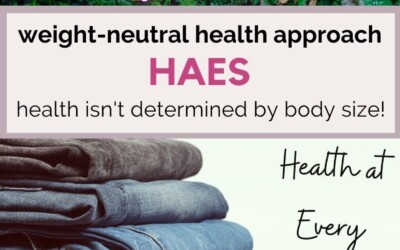
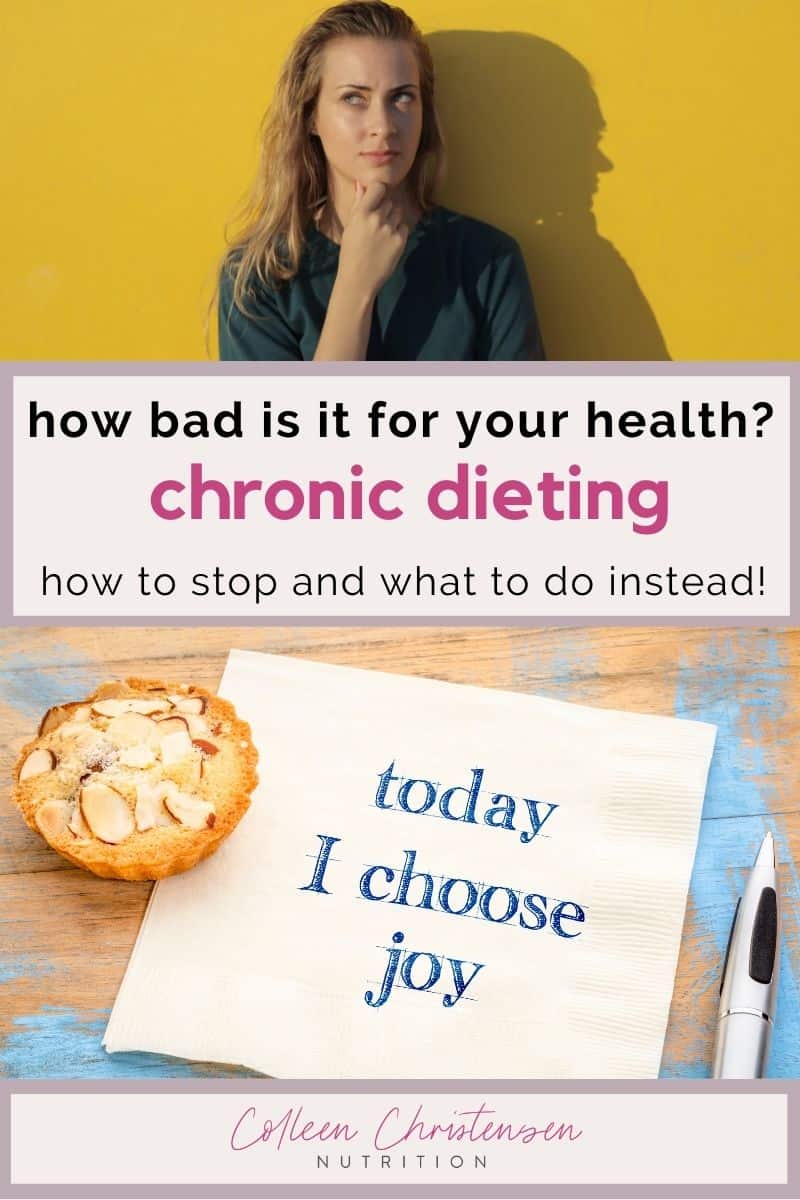
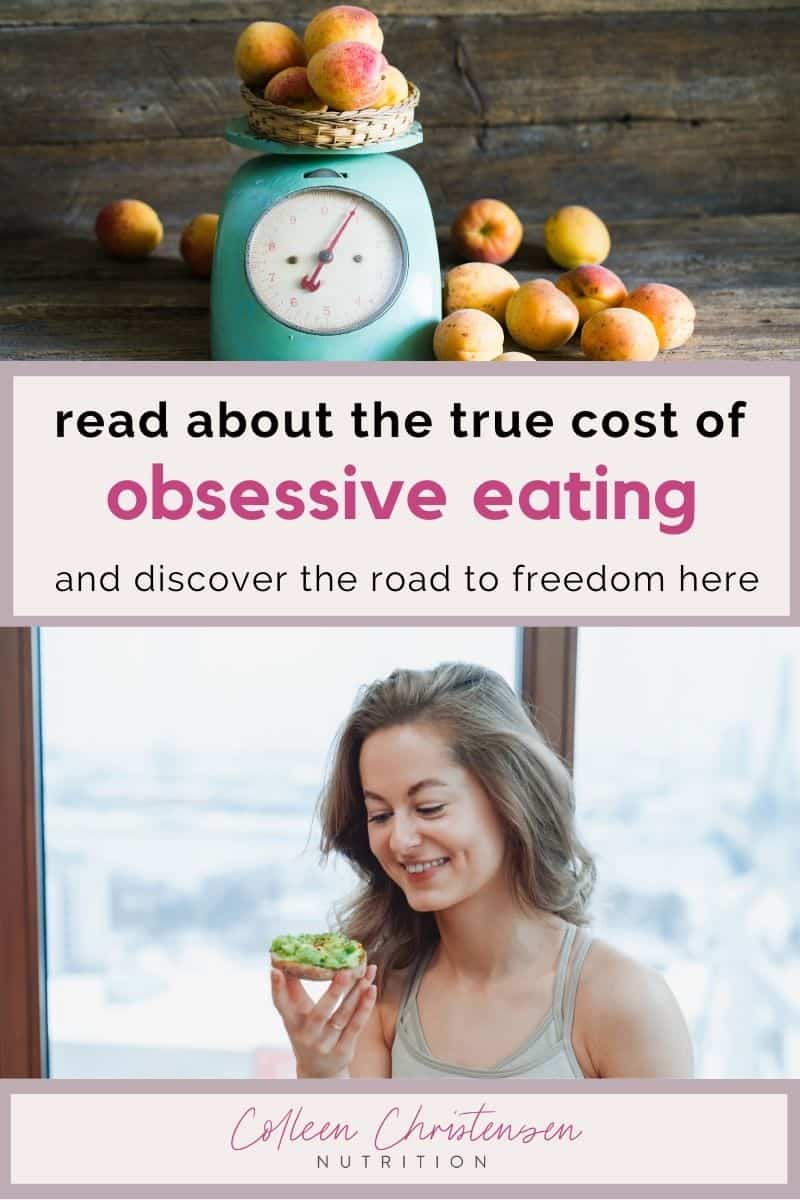
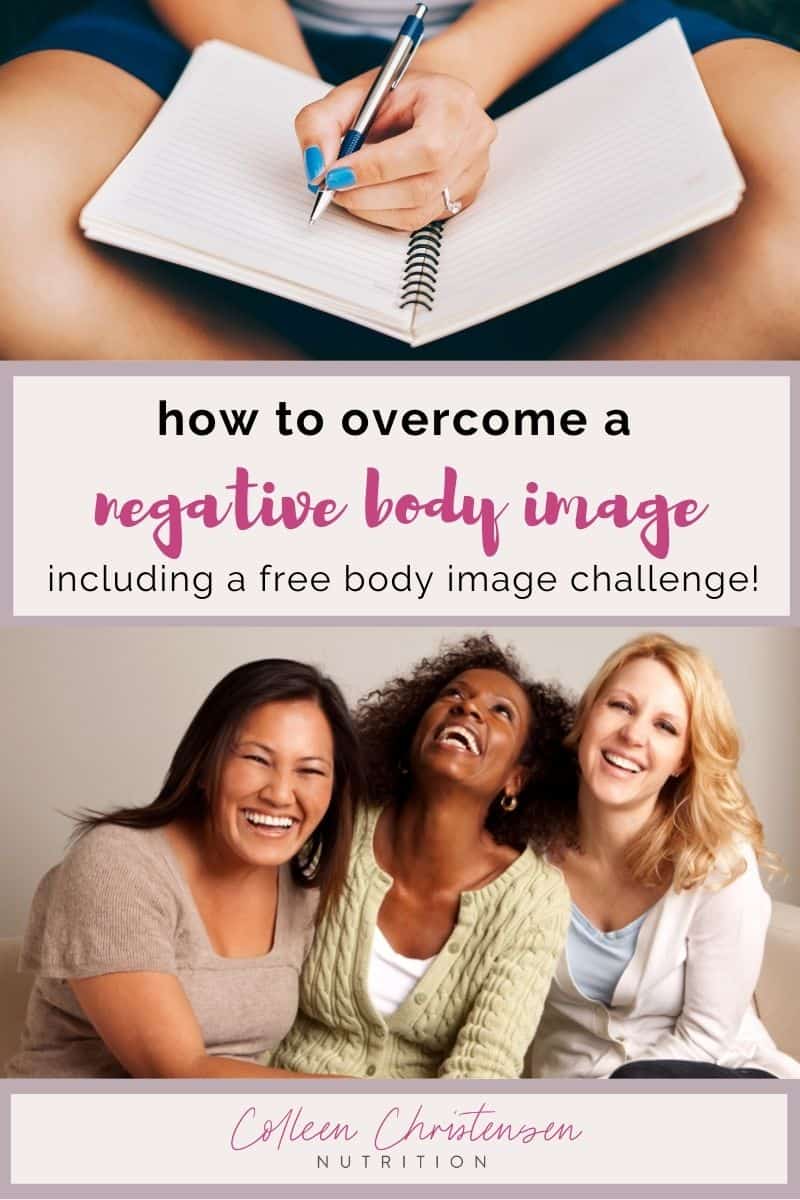
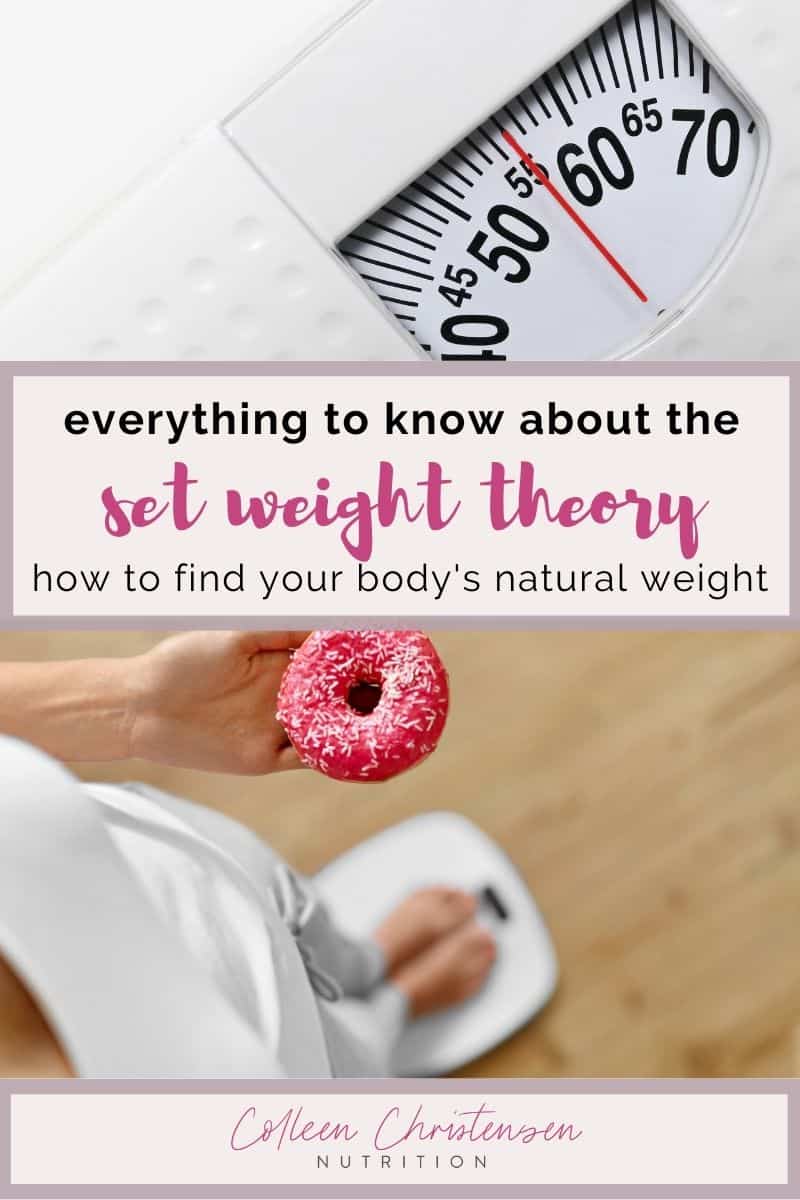



Leave a Reply